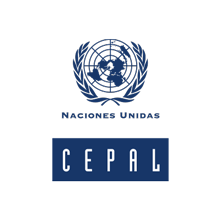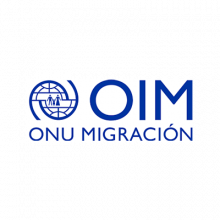
Usted está aquí
EVENTOS PARALELOS
LA REGULARIZACIÓN MIGRATORIA: UNA HERRAMIENTA PARA INCREMENTAR LA INTEGRACIÓN Y EL ACCESO A DERECHOS
27 de abril 2021
8:00 a.m. hora de Bogotá (GMT -5)
9:00 a.m. hora de Santiago de Chile (GMT -4)
15:00 p.m. hora de Ginebra (CEST)
Uno de los objetivos del Pacto Mundial para la Migración Segura, Ordenada y Regular (GCM) es aumentar la disponibilidad y flexibilidad de las vías para una migración regular. El Pacto reconoce que la regularización migratoria es una de las principales herramientas para integrar a los migrantes, promover sus derechos humanos y generar sociedades pacíficas, justas e incluyentes. Por esto, cada Estado, con el apoyo de la comunidad internacional, está llamado a desarrollar políticas de inclusión social y garantía de derechos de los migrantes, especialmente por medio de políticas de regularización migratoria efectivas.
Regularizar a los migrantes es entonces un primer paso para iniciar un ciclo virtuoso de los migrantes en los Estados de acogida. Para su realización se debe incuir a las comunidades de acogida para facilitar la integración y luchar contra la discriminación y la xenofobia.
Los migrantes en situación irregular son frecuentemente explotados y están expuestos a graves violaciones de sus derechos fundamentales. Por ello, conviene a los Estados la adopción de medidas regulatorias apropiadas para prevenir y eliminar el movimiento clandestino y el tráfico ilícito de los migrantes, asegurando al mismo tiempo los derechos humanos de los migrantes.
Por otra parte, carecer de estatus regular genera una extrema vulnerabilidad y afecta la capacidad de los migrantes para acceder al mercado laboral y a la economía formal, a los servicios básicos, protección y asistencia por parte del Estado receptor. En muchos casos, procesos de regularización restrictivos no inhiben ni impiden la migración, sólo dificultan que los migrantes puedan acceder a una vida digna.
Frente a una situación socioeconómica que ha empeorado en todos los países de América Latina y el Caribe debido al severo impacto de la pandemia de Covid-19, se hace aún más urgente debatir los vínculos entre regularización, acceso a derechos, comunidades de acogida y desarrollo.
Para abordar esta temática, en el evento paralelo participarán expertos que expondrán buenas prácticas de países de la región de América Latina y el Caribe que han adoptado medidas regulatorias amplias y basadas en la solidaridad frente a importantes movimientos migratorios recientes.
Es importante tambien que la comunidad internacional apoye a los países que reciben migrantes y a las comunidades de acogida para que sea más evidente y directo el vínculo entre desarrollo, migración y derechos, triada promovida por el Pacto Mundial para la Migración Segura, Ordenada y Regular.
Objetivo: Este evento tiene como objetivo resaltar la importancia de las medidas de regularización adoptadas en la región con miras a garantizar los derechos humanos de los migrantes, impulsar su integración social, luchar contra la xenofobia y la discriminación y cumplir con los objetivos del Pacto Mundial para una Migración Segura, Ordenada y Regular.
GENDER-RESPONSIVE APPROACHES TO MIGRATION: THE GLOBAL COMPACT FOR MIGRATION AS A GUIDING FRAMEWORK
Date: Wednesday April 28th 2021
Time: 9:00-10.30am Santiago, Chile
Concept note:
Gender-responsiveness is one of the cross-cutting and interdependent guiding principles of the Global
Compact for Safe, Orderly and Regular Migration (GCM) (Article 15)1
Gender affects all migrants at all stages of migration, however, gender can have uneven, and often deleterious impacts for some - particularly for migrant women and girls and marginalized groups such as LGBTI persons. Deeply entrenched gender inequalities which manifest in gender-specific forms of discrimination, for instance, in terms of access to education, decent work and social protection, and sexual and gender-based violence (SGBV), are major drivers of migration. Women and girls on the move are more likely to experience violence, abuse and exploitation while migrating. Gender produces differential opportunities, impacts and outcomes for migrants, and these uneven outcomes have been especially evident in the context of the COVID-19 pandemic. Around the globe, and in Latin America and the Caribbean, the pandemic has exacerbated gender inequalities, with migrant women in the region (roughly 50.4% of 11.7 million migrants) being disproportionately impacted by increased unemployment, poverty, and the overload of unpaid care, as well as increases in SGBV and risks of exploitation.
Gender-responsive migration policies provide an opportunity to support migrant women and girls, and empower them to thrive in their host communities. As governments move towards realizing the objectives of the GCM, it is vital that stakeholders and governments come together to build capacities and share guidance on how to design, implement, monitor and evaluate gender-responsive migration policies, programmes and services.
This side event, co-sponsored by the governments of El Salvador and Canada, brings together governments and civil society from the region and beyond, with the aim of sharing good practices, resources and guidance on mainstreaming a gender perspective in migration governance, with particular emphasis on the implementation of the GCM. Particular areas of focus addressed in this side event include: responding to the gendered impacts COVID-19 in the region; integrating a gender perspective into migration and settlement policies; strengthening capacity and fostering partnerships for enhancing gender-responsive migration governance.
1 Gender-responsive: The Global Compact ensures that the human rights of women, men, girls and boys are respected at all stages of migration, their specific needs are properly understood and addressed and they are empowered as agents of change.
It mainstreams a gender perspective, promotes gender equality and the empowerment of all women and girls, recognizing their independence, agency and leadership in order to move away from addressing migrant women primarily through a lens of victimhood.
Practical information
| SETUP REQUIREMENTS | HOW TO JOIN | Preparing for a Meeting | PARTICIPANT INTERFACE |
Meeting Links:
Session Name: Gender sensitive approach to migration: the GCM as a guiding framework
| HOW TO JOIN | as participant Meeting ID: 240212293259 |
HOW TO JOIN | Viewer Meeting ID: 770214562933 |



